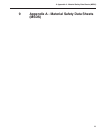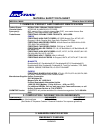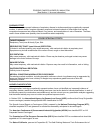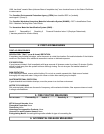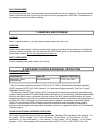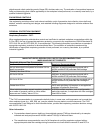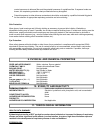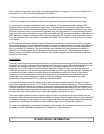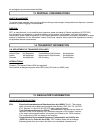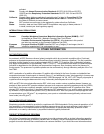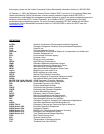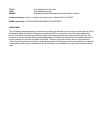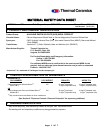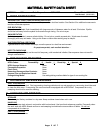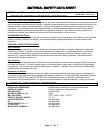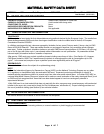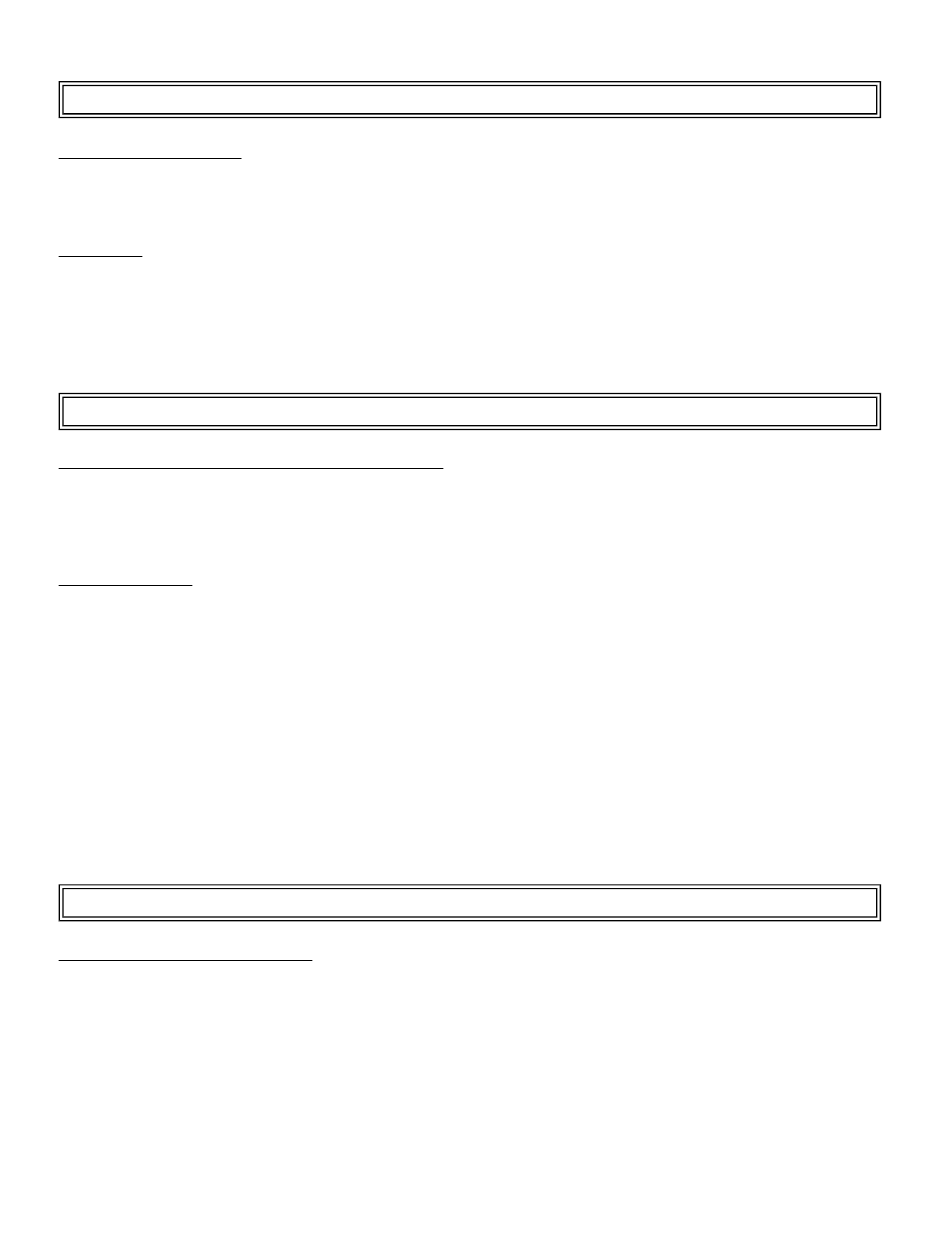
No ecological concerns have been identified.
WASTE MANAGEMENT
To prevent waste materials from becoming airborne during waste storage, transportation and disposal, a covered
container or plastic bagging is recommended.
DISPOSAL
RCF, as manufactured, is not classified as a hazardous waste according to Federal regulations (40 CFR 261).
Any processing, use, alteration or chemical additions to the product, as purchased, may alter the disposal
requirements. Under Federal regulations, it is the waste generator's responsibility to properly characterize a waste
material, to determine if it is a "hazardous" waste. Check local, regional, state or provincial regulations to identify
all applicable disposal requirements.
U.S. DEPARTMENT OF TRANSPORTATION (DOT)
INTERNATIONAL
Canadian TDG Hazard Class & PIN: Not regulated
Not classified as dangerous goods under ADR (road), RID (train) or IMDG (ship).
UNITED STATES REGULATIONS
13. DISPOSAL CONSIDERATIONS
14. TRANSPORT INFORMATION
Hazard Class: Not Regulated United Nations (UN) Number: Not Applicable
Labels: Not Applicable North America (NA) Number: Not Applicable
Placards: Not Applicable Bill of Lading: Product Name
15. REGULATORY INFORMATION
EPA: Superfund Amendments and Reauthorization Act (SARA)
Title III - This product
does not contain any substances reportable under Sections 302, 304, 313, (40 CFR
372). Sections 311 and 312 (40 CFR 370) apply (delayed hazard).
Toxic Substances Control Act (TSCA)
-
A
ll substances in this product are listed, as
required, on the TSCA inventory. RCF has been assigned a CAS number; however,
it is a simple mixture and therefore not required to be listed on the TSCA inventory.
The components of RCF are listed on the inventory.
Comprehensive Environmental Response, Compensation and Liability Act
(
CERCLA)
and the
Clean Air Act (CAA)
- RCF contains fibers with an average
diameter greater than one micron and thus is not considered a hazardous air



